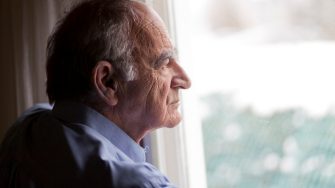Aftercare Interventions For Older People Who Have Self-Harmed: Strengths And Limitations
Recent research has studied some of the needs of older people who have self-harmed to inform guiding principles for appropriate Aftercare.
Recent research has studied some of the needs of older people who have self-harmed to inform guiding principles for appropriate Aftercare.

Older people, particularly men over 85 years, have the highest rates of suicide across any age group in Australia. However these numbers are not well known or publicised and consequently there are relatively few interventions or programs targeting older people for suicide prevention.
The term Aftercare refers to coordinated follow-up and management of individuals following self-harm or attempted suicide. There are various types of Aftercare services, ranging from dedicated services to closely follow-up a person after self-harm, to specific therapeutic programs (e.g. psychotherapy), and defined pathways of care. Whilst Aftercare has been associated with reduced risk of repeat suicidal behaviours in adults (generally of working age), there are current knowledge gaps of the strengths and limitations of these programs for older people.
A/Prof Anne Wand (USyd), Conjoint Senior Lecturer (UNSW), and Senior Staff Specialist Psychiatrist, led research with co-investigator Prof Carmelle Peisah (both are UNSW Aging Futures Institute members), to explore the strengths and shortfalls of current Aftercare services for older people. The study, funded by the Ministry of Health, engaged key stakeholders including older people with lived experience of self-harm, clinicians and suicide researchers.
“We found three broad themes from the research regarding strengths of current Aftercare for older people. The first is “Validating and hearing the person” to ensure individuals are appropriately listened to and engaged with; the second “person-centred Aftercare” to ensure that plans are individualised and context specific; and the third “optimising Aftercare delivery” to enable older people to undertake holistic programs and interventions in safe settings – for example in their own homes.” A/Prof Wand said.
“In terms of limitations of current Aftercare for older people, three broad themes of ageism, practical limitations (such as barriers to access) and limited services, funding and training were identified. Many of these themes regarding deficiencies in older persons’ Aftercare have been raised before – highlighting that Aftercare services should be designed and implemented which address the lived experience and specific needs of older people utilising these services.”
“We hope this research provides the foundation to ensure Aftercare programs are delivered appropriately and effectively to older individuals.”
Read the full article here.
If this article has raised issues for you, or if you’re concerned about someone you know, you can call these support services, 24 hours, 7 days:
Lifeline: 13 11 14
Suicide Call Back Service: 1300 659 467
Kids Helpline: 1800 551 800 (for people aged 5 to 25)
MensLine Australia: 1300 789 978
StandBy - Support After Suicide: 1300 727 24